How this Black beekeeper in Phoenix is changing the game with the Baehive Sisterhood
Every other Sunday, a group of women wearing black T-shirts that read "Baehive Sisterhood" pull on white bee suits behind the Orchard Learning Community Center in south Phoenix.
The school teachers, doulas, homeschool moms and urban farmers never expected they would be inspecting 12 honey bee hives at 8:30 a.m. on a hot weekend morning with sweat dripping down their faces. But what started as a project aimed to educate children about farming has blossomed into a sisterhood thanks to Chanika Forté , who made it her mission to empower, support and provide apicultural education to women of color.
Since graduating from Forté's honeybee course, the bees have become part of their lives. Some women have failed and some have successfully tried to catch a swarm of bees, others now have beehives in their backyards, but all the women have learned the benefits of being surrounded by hives.
After being let go from a district analyst position at U-Haul in 2010, Forté returned to school to become a life coach. She followed the footsteps of the women before her when she enrolled in the Southwest Institute of Healing Arts in 2014 and took up urban farming.
For seven generations, the women in her family have farmed in Alabama and in her home state of Michigan. But, it wasn't until recently that she realized she "didn't just stumble" into farming.
"I'm a replica of the women who came before me, and I didn't even know it,' she said. "There's comfort in that because I know that there are times where I doubt myself, and I will never doubt myself again. I know I'm doing what I'm supposed to be doing. I know that it's in my DNA to do this — and I'm going to ride it till the wheels fall off."
Andi Berlin's gift to you: The 5 best new restaurants in metro Phoenix of 2022 so far
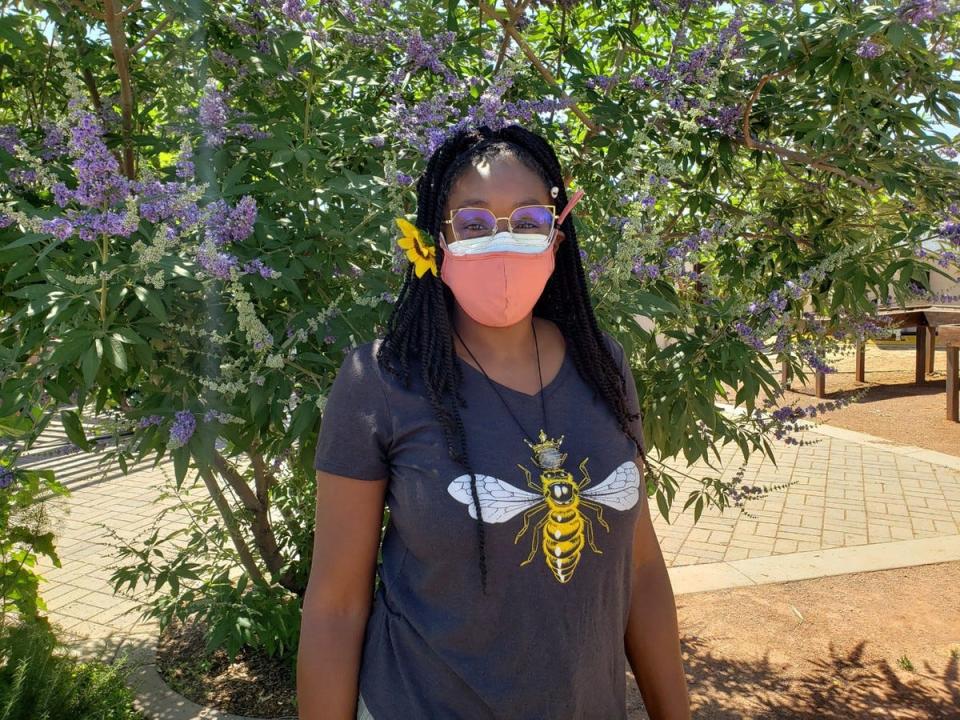
Farming as a way to support families
Forté found her way into farming while completing an externship at St. Vincent de Paul in college. The mother of four never wanted to leave its urban farm near Watkins Road and Third Drive. She was there when the gate opened and there until it closed.
"When they were closing the gate, I was like, 'Can you please keep it open for 15 more minutes,'' she told a crowd during a panel celebrating Black farmers at Grassrootz Bookstore and Juice Bar.
She found a sense of purpose as she harvested food for families experiencing things she also went through as single mother raising children in housing projects. She remembered waiting on buses to get to the grocery store and debating which bills to pay. At the farm, she knew she was eliminating someone else's need to decide what food to give their kids and worries about feeding their children healthy options.
She worked at St. Vincent de Paul for almost two years as part of AmeriCorps' Public Alliances apprenticeship program, which payed a stipend for her to work at the nonprofit. She was hired as an urban farm program manager and community involvement coordinator in 2017. At that time, she managed the Human Service Campus' urban farm. Two years later, she was promoted and now manages all three of its urban farms.
On her journey, she noticed a lack of diversity in the industry, so she set out to empower women to engage with sustainable beekeeping and gardening as a way to generate additional income and teach their communities the importance of farming.
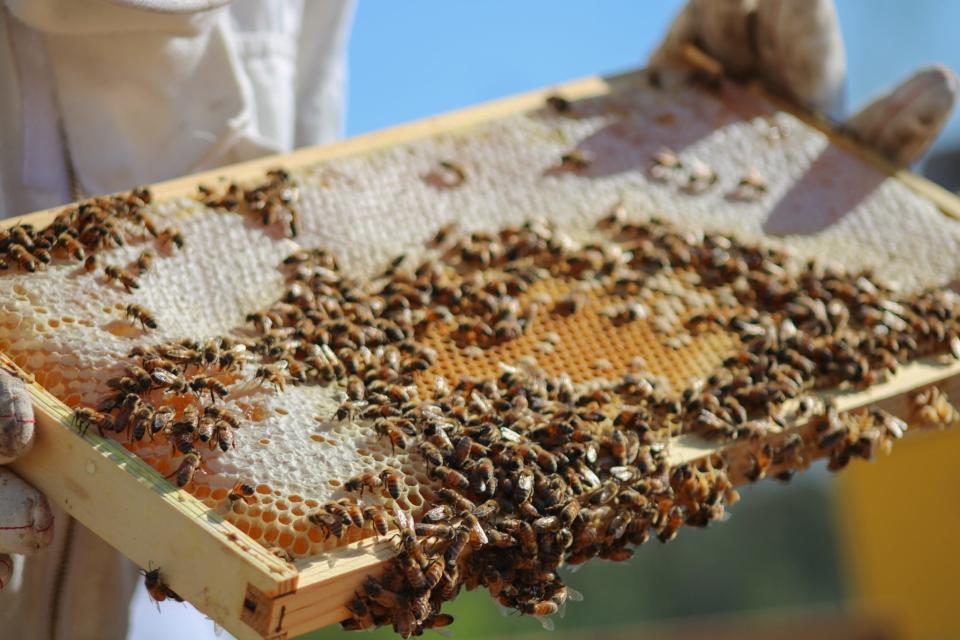
From urban farmer to beekeeper
In 2017, Forté was looking for a way to increase St. Vincent de Paul farm's production without adding chemicals when she learned that adding bees to the farm can increase production from 10 to 20%.
During an introduction to beekeeping course with Honey Hive Farms, where she learned honey bee biology and best practices for colony management, she said she was nervous. But she calmed down once she pulled a frame out of the box to examine the bees and felt them vibrating in her hands.
"It was like this vibrational frequency that I never felt before," she said, adding that during that moment, she knew she wanted to work with bees all the time.
Since completing her training, Forté added four beehives to the nonprofit's urban farms, including a swarm of bees she caught on the Human Services Campus.
When she received her first personal queen bee, Oshun, in 2019, she was "super confident" in her beekeeping skills, so much so that when she went to inspect the hive, she only wore gloves.
"I wanted to have all the experiences and I learned after a while that's not the safest thing to do," the 41-year-old said.
As she fell in love with bees, she began teaching people seeking services from the nonprofit the importance of beekeeping.
More: Killer bees DO want to sting you. Know these Africanized-bee safety tips
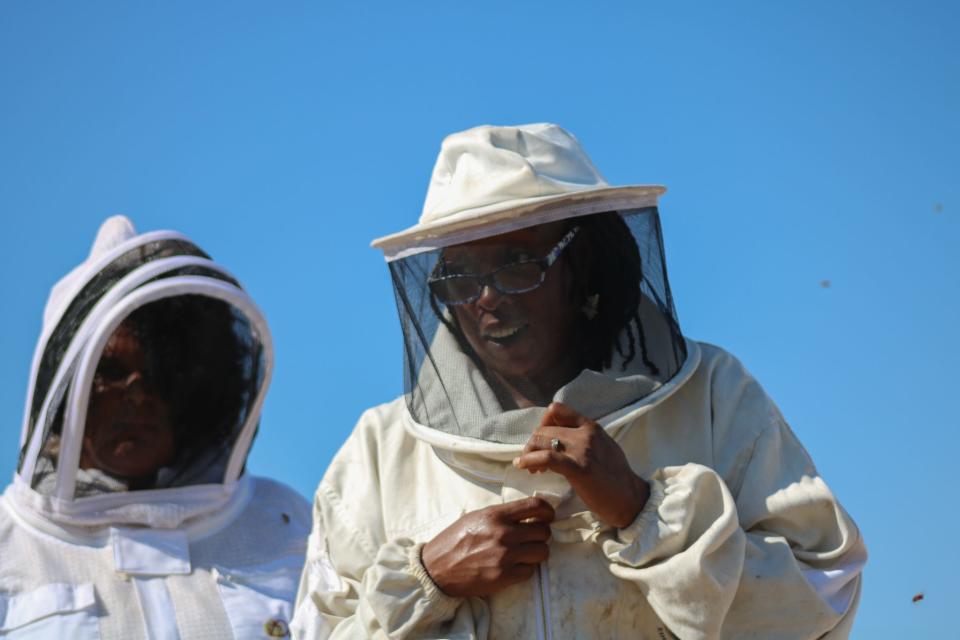
Inequity in beekeeping
While Forté was learning about bees, she came across the so-called Africanized honeybee.
"It's as if people cannot see the blatant racism/bigotry in the term," she wrote in a blog post.
She's not alone; scholars say the word resonates with racial fear, comparing the media's coverage of Africanized bees to its coverage of Black people. She doesn't deny that Africanized bees can be aggressive, but said assuming a bee's genetic makeup without conducting any tests is problematic and can "get those bees killed."
The Africanized honeybees that arrived in the United States during the 1990s are descendants of the 26 African queen bees that escaped Warwick Kerr's experimental apicultural center in Brazil and bred with European bees. Kerr had sought to breed bees that would be more efficient honey producers and better suited for warmer tropical climate.
"Just as labeling human beings we have come to a place where labeling different species of bees has been approached very much in the same way. The difference in the descriptions of different species of bees play a role in how we as Americans think, feel and respond to the 'Africanized Killer Bee,'" she wrote.
Forté also had noticed a lack of diversity in the beekeeping world.
"How many Black beekeepers have you seen?" Forté asked, adding that she had never met a Black beekeeper before becoming one.
She set out to connect with other Black beekeepers, posting in a local beekeeper group on Facebook, asking if there were any other beekeepers of color in Arizona. She said the responses to the post surprised her.
She said that some people called her a race baiter and that she shouldn't use the group to seek out Black beekeepers. She also learned that there were only two — herself and a man who lives in San Tan Valley.
"There are not a lot of Black beekeepers and one reason is due to access to land," Forté said. She also said there is a disconnect between Black people and agriculture because of its connection to enslavement in the United States.
"It was used against us and we don't want to be associated with something that was used to control us," she said.
In 2020, she set out to change that.
Dream come true:One mom and her daughters are bring 'the islands' to Buckeye
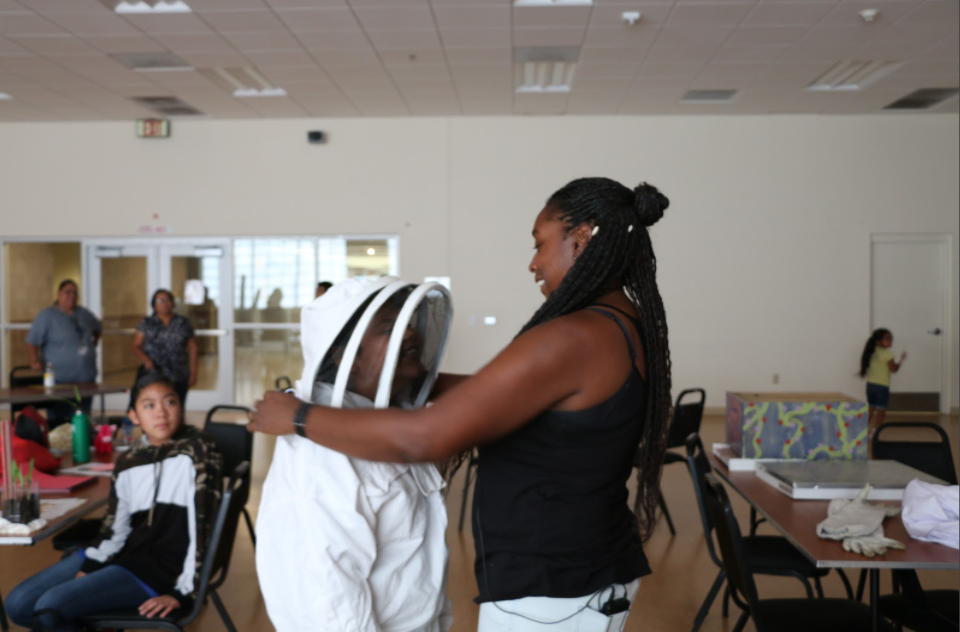
Teaching people of color to embrace agriculture and keep bees
Forté launched ABC Mobile (short for Agriculture, Bees and Composting) in 2019. She wanted to build something to pass down to her children and she thought creating a nonprofit where she would travel to schools in a converted school bus to teach children about pollinators, how to grow seeds and the importance of composting would become a part of her legacy.
Then the pandemic broke out and schools went remote, effectively putting the program on indefinite hold.
One day, Forté asked her best friend, Talibah X, if she would join a beekeeping class if she taught it. She said yes and Baehive was born.
When she taught her first beekeeping course at Spaces of Opportunity in south Phoenix, she doubted herself. Though both of her parents are teachers and she'd created a curriculum to teach a packed room of children about agriculture at St. Vincent de Paul, teaching adults was different and intimidating.
"I didn't know that day was going to lead to today," she said, adding that since then, she's trained almost 30 women to be beekeepers.
In the fall, Forté teaches a six-week course during which women learn how to identify different bees, how to complete a hive inspection and the history of beekeeping in Africa. Her students have ranged in age from 7 to 65 years old. The youngest beekeeper is her best friend's 8-year-old daughter, who "took to the bees." The oldest is known as mama Rachel.
She also teaches a two-day mini beekeeping course that focuses on the basics of beekeeping.
"There are more Black beekeepers in Arizona now," she said. "And a lot of them are women."
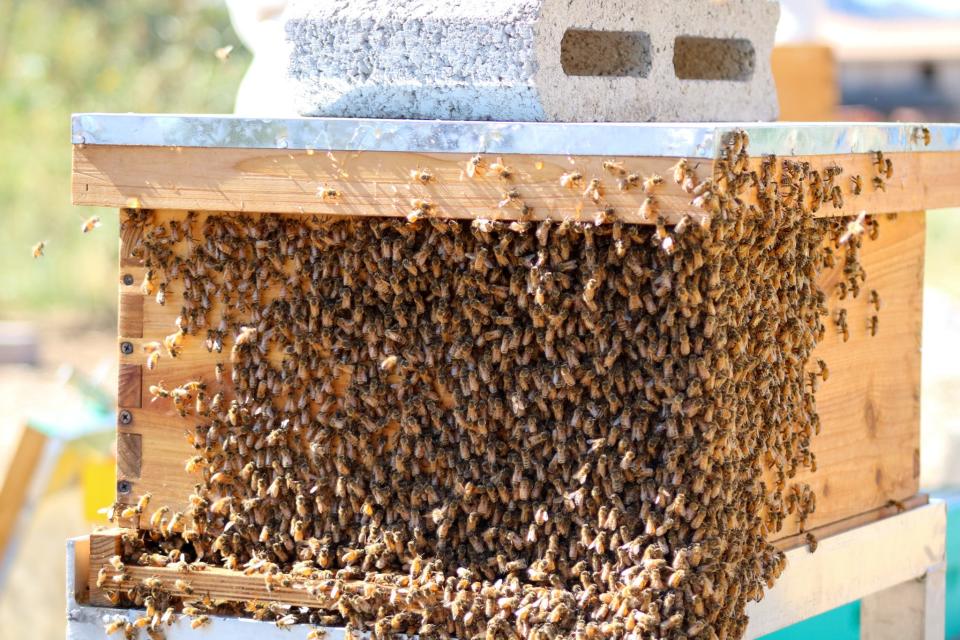
'The future for Baehive look likes a national movement'
Forté is also collaborating with Local First Arizona to manage the Community Tire Garden, renamed Heart and Soil.
The garden will serve as a collaborative workshop for women and is expected to open in the fall.
In the next five years, Forté plans to purchase 10 acres of land where she can keep bees and grow food to feed the community. She envisions a community center on that land where she can teach others and hold events.
"The future for Baehive look likes a national movement," Forté said. "Hopefully in the next five years it looks like a huge sorority."
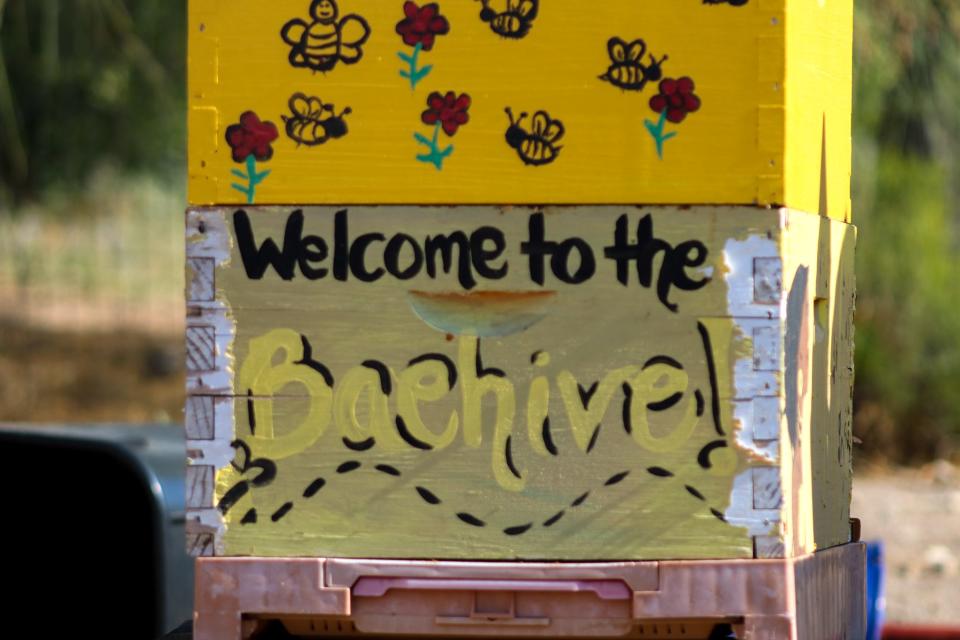
How to support Baehive
BaeHive honey is sold at Grassrootz Bookstore and Juice Bar in downtown Phoenix for $10 to $20, depending on the size and type of honey. Forté sells ginger-infused honey, hibiscus-infused honey, garlic-infused honey and cinnamon-infused honey in 8 to 16-ounce jars. Some of the proceeds go to scholarships that help women pay for beekeeping training.
To sign up for a two-day or six-week beekeeping course, visit Baehive's website: baehive.org.
More buzz: How to become a backyard beekeeper in Phoenix
Reach the reporter at Jonmaesha.Beltran@gannett.com or on Instagram @Jonmaesha.
This article originally appeared on Arizona Republic: Arizona honey: Baehive teaches women to keep bees in south Phoenix

